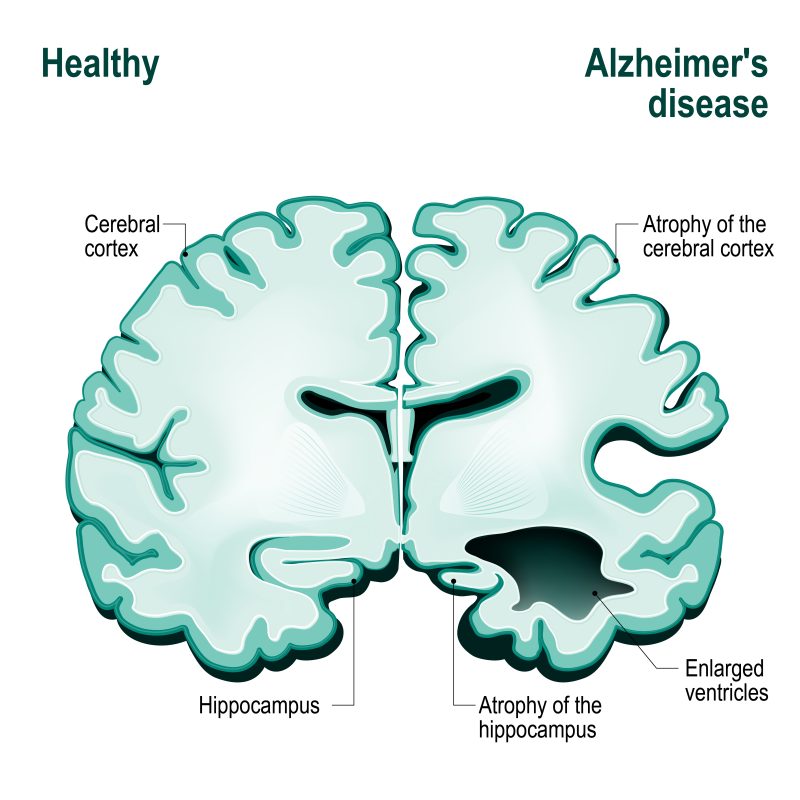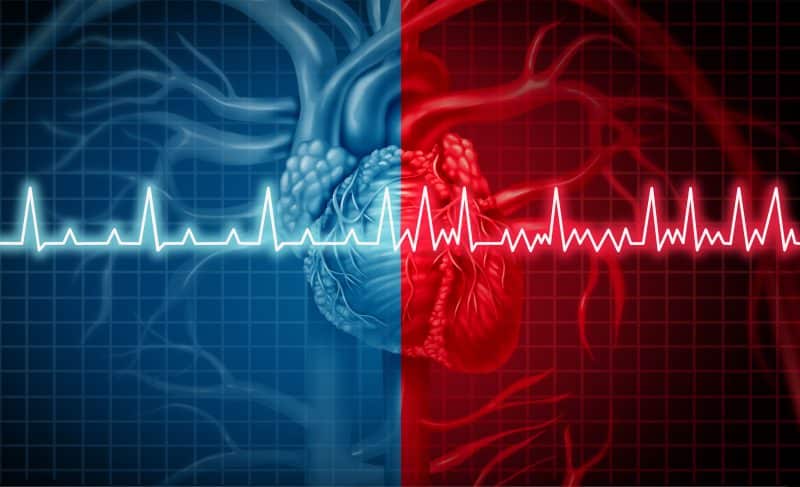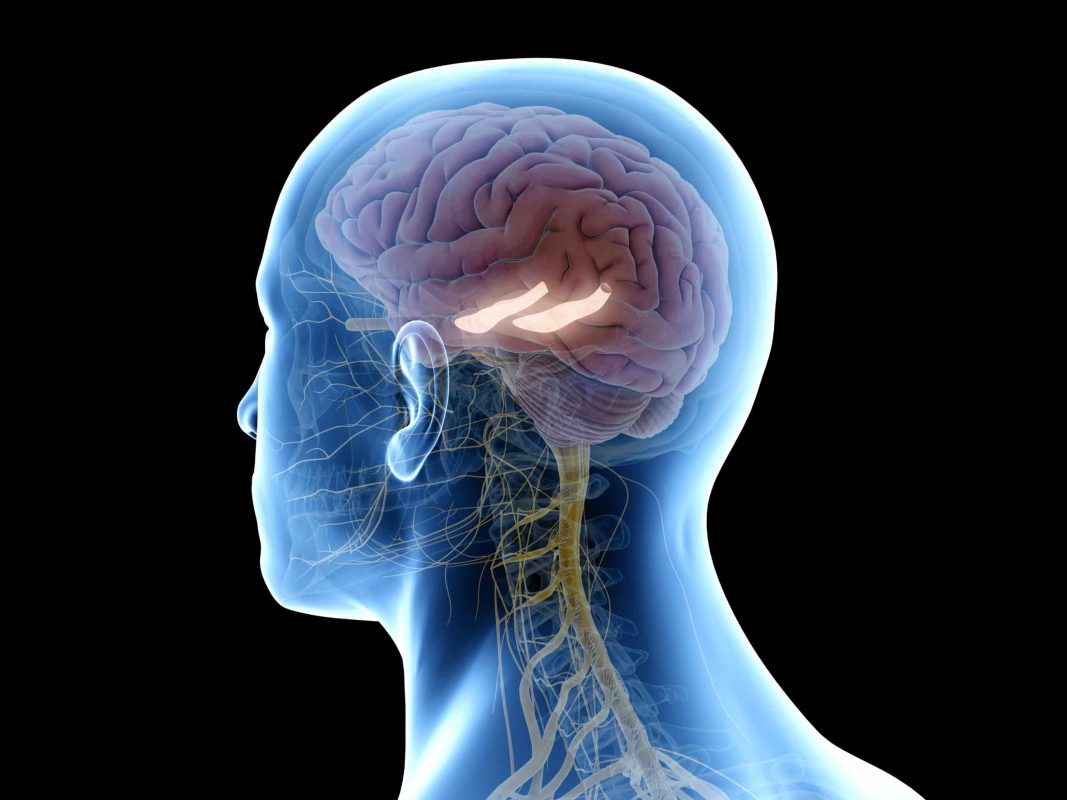Your teeth—and the health of your mouth—believe it or not, have direct associations with your brain. Some studies have shown that there is a significant correlation between the number of teeth you have and how healthy your mouth is to the size of your brain.
Brain Shrinkage and Your Oral Health
Taking good care of your teeth could be linked to better brain health, according to a study published in the July 2023 online issue of the American Academy of Neurology. Conducted at Tohoku University in Japan, researchers found that gum disease and tooth loss were linked to shrinkage in the hippocampus, which is the part of your brain that processes memory. It is also the place where Alzheimer’s disease occurs.
The study involved 172 people, with an average age of 67, who had no memory problems. Each participant had dental exams, memory tests, and scans to measure the size of the hippocampus at the beginning of the study. Researchers also counted their number of teeth and checked for gum disease, finding that people with mild gum disease had an increased rate of brain shrinkage and one less tooth. Participants having one less tooth equated to a year’s worth of brain shrinkage.

They also found this to be true for participants who had one more tooth in their mouth, those who had gum disease, and those who had crowded teeth. These aspects of your mouth affect the brain and accelerate its aging, year over year. Dr. Yamaguchi, the lead researcher in this study states, “These results highlight the importance of preserving the health of teeth and not just retaining the teeth. The findings suggest that retaining your teeth, with severe gum disease, is associated with brain atrophy.”
What’s the Connection Between Your Mouth and Your Memory
In short, dental visits are crucial, and it’s important to take necessary action to keep your mouth in its healthiest state. That may mean replacing teeth affected by gum disease with prosthetic devices such as dental implants. You might be wondering what this relationship is and why it’s so important. Well, as Dr. Jill Wade often highlights, the body is not just parts and pieces but a total system, and all things work together.
With that in mind, the process of digestion doesn’t start in your stomach, it starts in your mouth. If you think about a food commercial, advertisers use highly enticing imagery, with smoking meats and misted veggies, stimulating your appetite. Although you can’t taste or even smell the food on the screen, chances are that you’ll salivate as your brain processes those images. Similarly, when you chew your food, you naturally produce more saliva, which has enzymes to help break down your food. So, while your teeth are reducing the bites of food into smaller, more manageable pieces, your saliva is making further reductions to facilitate easier swallowing. These things may seem “mindless,” but each takes the power of the brain to carry out effectively, and if you remove one “tool” (e.g., the teeth, saliva, etc.), it makes those tasks much more difficult to complete.

Dr. Wade stresses that it’s best to keep a healthy mouth rather than just trying to keep your teeth. Of course, keeping your teeth is ideal, but if you have periodontal disease, trying to keep your teeth rather than treating the disease could actually be worse. “When you have periodontal disease around multiple teeth…though it may not seem like a very big surface, it’s as if you [have] a huge, opened, diseased wound,” Dr. Wade explains. “Because it’s in the mouth, you don’t see it, [and] periodontal disease isn’t painful…[meaning] you can tolerate it for a long time—years—but the bacteria…that live around the teeth get into the bloodstream and go across the brain barrier. That’s why it’s affecting the brain.”
That’s not to say that all bacteria can affect, or even reach, your brain, but some bacteria, specifically porphyromonas gingivalis (PG), can. Researchers have connected this bacteria to both dementia and Alzheimer’s disease. Interestingly enough, Dr. Wade says, PG is also associated with heart disease. She reveals that, in dentistry, they refer to dementia and Alzheimer’s as Type 3 diabetes because “it affects your extremities and the smaller blood vessels.”
It’s the same type of situation in the brain where the small vessels start to cause dementia, which then move into Alzheimer’s.
The Blood-Brain Barrier
Because the brain is connected to the mouth and the gut, it’s not entirely surprising that researchers have found PG in the brains of Alzheimer’s patients, postmortem. Equally connected to your oral health is your heart. According to a 2007 study by the American Heart Association, patients who had pre-existing heart conditions were encouraged to take antibiotics before certain dental procedures to avoid complications such as bacterial endocarditis, which is “a heart infection caused by bacteria that enters the bloodstream, settling in the heart lining, heart valves, and blood vessels,” says health and beauty expert Laura Lewis-Edwards. The study further attests that regular tooth-brushing and practicing good oral hygiene was as effective for those patients as antibiotics.
Conversely, those who had poor oral hygiene had a greater risk of developing infective endocarditis. While heart disease may be reversible, once the heart is damaged by endocarditis, major surgery is the only effective cause of action or repair.

“Oral bacteria and the oral-systemic connection can infect your heart and cause problems,” arns Dr. Jill Wade of Stonebriar Smile Design.
Even though these are research-proven complications from poor oral hygiene, it’s still astounding to imagine that lowering your risk of atrial fibrillation and heart failure is in the power of the toothbrush and the frequency with which you brush your teeth—according to a study published in the European Journal of Preventive Cardiology. Poor oral hygiene leads to bacteria in the blood, which, consequently, causes inflammation in the body.
In a separate study, conducted by the Korean National Health Insurance system, of over 161,000 people, ages 40 to 79 with no history of atrial fibrillation or heart failure, researchers collected data, including height, weight, illnesses, lifestyle, oral health, and oral hygiene behaviors. Using this data as a comparison, they followed up with the participants ten years later to find that three percent of the participants who didn’t engage in daily oral hygienic practices developed atrial fibrillation, and five percent developed heart failure. Meanwhile, those who brushed their teeth three or more times a day had a ten percent lower risk of atrial fibrillation, and a twelve percent decreased risk of heart failure.
“So, get those toothbrushes out and start brushing!” Dr. Wade encourages.
Frequent tooth-brushing reduces bacteria living in the pockets between your teeth and gums, and maintaining good oral hygiene prevents that bacteria from entering the bloodstream. Therefore, brushing your teeth is good for more than just your mouth, it’s good for your heart, and it’s good for your brain. Taking care of yourself starts with simple, basic practices, like eating well, getting sufficient sleep, and of course, brushing your teeth. Each of these seemingly small tasks makes a big impact on your brain: garnering nourishment from nutrient-rich foods, processing and storing newly acquired information while you sleep, and disrupting and ridding your mouth of harmful bacteria when you brush.
Click here to watch this episode of the Beyond Face Value Show on YouTube.
Visit us on YouTube to hear more about Stonebriar Smile Design and wellness dentistry, and be sure to comment, like, and subscribe.




